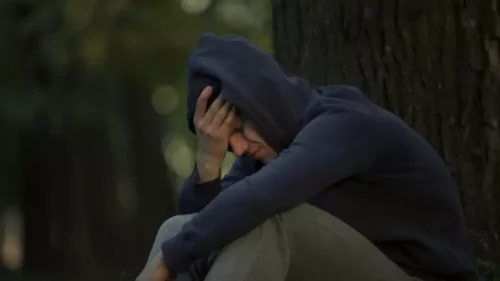
When we show gratitude towards others we are in relationships with, they too feel better and the relationship can heal and improve. Some studies have shown that when gratitude is expressed in romantic relationships feelings of happiness lasted through the following day. When you choose to think with a grateful mindset, you will improve your physical, mental, and spiritual health.
Sober Companions vs Sponsors: What’s the Difference?
Even if today wasn’t your best, have perspective on how far you’ve come. Your progress is an achievement, and you can only appreciate the good when you acknowledge the bad. Call us today at Circle of Hope and let us help you gain your own sense of practicing gratitude in recovery. Gratitude is one of the most powerful things that you can include in your recovery. But in several other ways, it requires you to actively put in the effort. At the beginning of your addiction treatment, you may not be thinking of much else https://ecosoberhouse.com/article/how-addictive-is-oxycontin/ outside of how you feel physically.

What Life Looks Like with Gratitude
So, if you’re looking for a way to boost your recovery, start by practicing gratitude. In the often-turbulent journey of addiction recovery, feelings of gratitude can play an important role in helping you feel secure and connected. On the one hand, gratitude arises from within, helping you focus on and appreciate your own experiences instead of projecting those experiences outwards onto others. By cultivating an attitude of gratitude for your inner resources and qualities, you give yourself a foundation of strength that can help you weather difficult times. Research has shown that practicing gratitude can lead to improved physical health as well as a decrease in depression symptoms.
Ways to Maintain an Attitude of Gratitude in Addiction Recovery
It can lead to seeing the land surrounding us as our home, not as property we own. In Kimmerer’s words, those who immigrated to America must find a way to become indigenous to this land. I have been thrown into turmoil over what I can personally do to practice gratitude for all earth has given me throughout my 78 years. After some thought, I have made a decision to serve the songbirds I remember being so plentiful when I was young but have become so much rarer now. As a child I remember the golden finches, redwing blackbirds, Baltimore orioles, and bobwhites that sang through the woods. Without much vision now, I delight in the birds still chirping in my yard.
- However, once that fades away, you will get down to the nitty-gritty of your care.
- Gratitude is synonymous with thankfulness, but it’s more than that too.
- It doesn’t have to be a grandiose feeling of appreciation every day.
- Recovery allows you to explore new opportunities and make new connections without the distraction of drugs or alcohol.
By identifying things to be grateful for, you’ll be able to find the strength and motivation to keep moving forward. Acknowledging how much you’ve progressed throughout your recovery journey can be helpful when you’re struggling with addiction. Many studies support the use of gratitude to improve outcomes for people in recovery from drug or alcohol use disorder. In one study, the researcher evaluated a group of treatment participants and some staff members for psychological traits, coping skills, gratitude, and other factors. A grateful approach allows you to take on challenges with a positive mindset.

What are some ways to cultivate a thankful mindset in addiction recovery?
Another study looked at participants in Alcoholics Anonymous (AA), all in recovery. Those who practiced more gratitude were more likely to participate in AA, to make the AA promises, and to have good social support. They were also less likely to experience stress and other negative health symptoms. We know that gratitude can have mental and physical benefits, aiding in the challenges of recovery.
- Basically, gratitude is seeing what is good in life and the goodness in others.
- People who practice gratitude tend to be more optimistic, empathetic, and resilient.
- In studies where participants wrote letters of thanks to people who had positively impacted their lives, they reported feeling happier for up to a month after completing this task.
How to Cultivate Gratitude and Reap the Rewards in Your Recovery
- The important thing is that you take stock, recognize where things contribute to making your life better, and give those things a moment of attention so that you know they are there.
- While we can look at each one of these things and find an issue, the power is in finding the good in each.
- The positive benefits of gratitude for everyone, including individuals in recovery, has long been noted.
A research paper published in the Journal of Happiness Studies in 2020, it showed that being grateful regularly could diminish symptoms of anxiety and depression. Gratitude is defined as the quality of being grateful; readiness to show appreciation for and return kindness. Basically, gratitude is seeing what is good in life and the goodness in others. The flip side is being resentful and seeing what’s wrong in life, not what’s right. And no matter which way we choose to look, there will be plenty to be found of both. With gratitude, you can sense gratitude in recovery how far you’ve come and where you might go next.

They saw that those who reported paying it forward out of gratitude had different brain activity than those who did it out of guilt or obligation. Reframe supports you in reducing alcohol consumption and enhancing your well-being. The important thing is that you take stock, recognize where things contribute to making your life better, and give those things a moment of attention so that you know they are there. Timmen L. Cermak, MD, is a psychiatrist who specializes in addiction medicine. He is the author of numerous books, including From Bud to Brain and Marijuana on My Mind. Having a recovery plan that you can always fall back on gives your recovery some structure.

How does cultivating a thankful mindset help in addiction recovery?
Force yourself to keep up with your gratitude routine, watch your language and try to keep your perspective clear. Often, just by going through the motions, you’ll find yourself feeling grateful by the end of the day. When you’re struggling, you can reach for your gratitude journal or reminders to rebalance yourself. It can remind you of how far you’ve come and all you’ve done to get to this stage of recovery. So how exactly does someone practice gratitude and know they’re doing it right? Figuring that out is a natural first step in the mindful gratitude journey.
Practice the Gratitude Motions
The steps of your recovery plan should be at the top of your list – consistently. Getting the help you need is the first step toward recovering from addiction. Many people suffering from addiction put this step off for years, and some indefinitely. You should therefore be grateful for getting the help you required, or for the people in your life who got you help for your addiction. Regardless of how you got to where you are, you are here now, on the pathway to recovery. Addiction can rule a person’s life, as getting and using the drug or drink of choice can dictates actions large and small.





